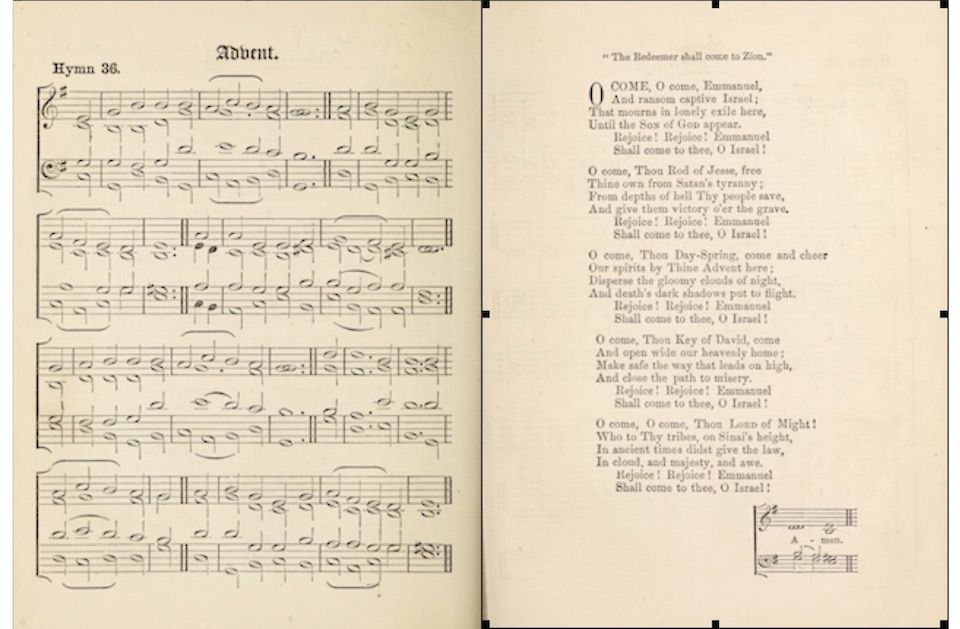
The period Christians call Advent begins Sunday November 30. In countries with Christian populations pop music increasingly gives way to religious hymns, leading up to Christmas. Michael Sasges gave thought to one of the season’s most evocative pieces, O Come, O Come, Emmanuel. Here’s an excerpt of his story about John Mason Neale — On reading and writing our winters away:
This is a “begat” story, its subjects a winter hymn and its creator, a man who passed his adult years in that figurative winter that is the lot of the chronically ill and perpetually defiant.
The hymn is O come, O come, Emmanuel, in Latin Veni, Veni, Emmanuel. It is a winter song because it is only, or mostly, performed and heard by the Christian faithful during that part of the liturgical year they call Advent.
The last Sunday of November or the first Sunday of December is inevitably the first Sunday of Advent. This year, 2014, the first Sunday of Advent is the last Sunday of November.
Emmanuel is an expression of longing, spiritual longing. If there be an equivalent expression of material longing, it might be Walt Whitman’s Soon Shall the Winter’s Foil be Here.
The man who nominated O come, O come, Emmanuel for inclusion in the English-language hymnology was John Mason Neale (1818 – 1866).
He was a “divine and author,” in the words of a 19th century Dictionary of National Biography, or “Church of England clergyman and author,” in the words of the DNB Internet edition. … continue reading (no charge*).
*Independent, non-partisan and employee-owned, Facts and Opinions performs journalism for citizens, funded entirely by readers. We do not carry advertising or solicit donations from non-journalism foundations or causes. We appreciate and need your support: please click here to purchase a $1 day pass, or subscribe. Sign up using the form on the right side of our Frontlines blog to receive posts by email. Contact us at Editor AT factsandopinions.com.

